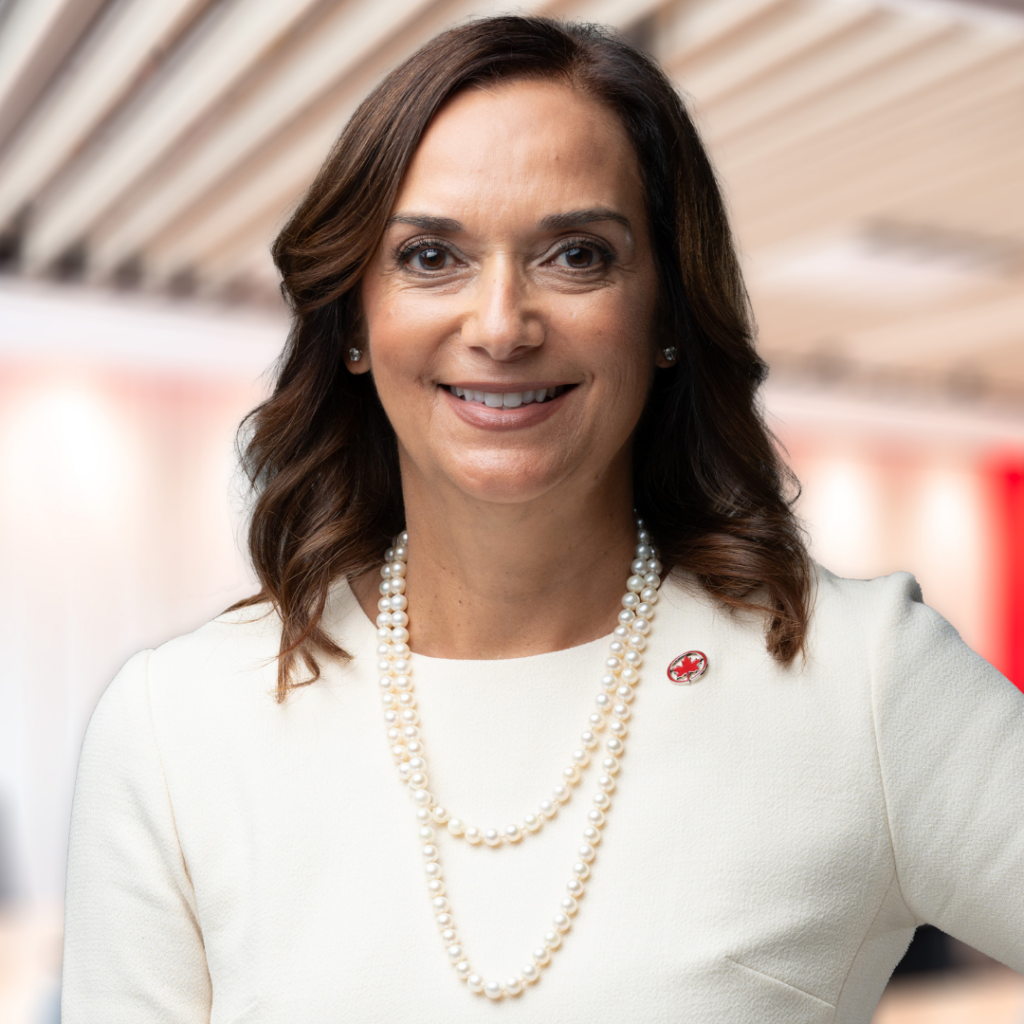
Catherine Clark: You have been through quite a time recently in terms of the airline industry here in Canada. What are the key takeaways from this turbulent time?
Arielle Meloul: Sure, it was a very turbulent time for the world globally, but particularly for our industry. What really resonates is that our frontline employees were frontline heroes, and yet our industry was, to a large extent, vilified. You know, there was a lot of talk about grounding airplanes and that COVID was on the planes and all of that stuff.
So we had our frontline colleagues who, in the beginning, when we didn’t know what we were dealing with, were putting their lives at risk every day. But they weren’t treated as heroes, as were the grocery store workers or the hospital workers, who all obviously deserved that recognition. But our employees did as well. So it was a really tough time for our employees. It was a tough time to be at the helm of HR, seeing and feeling that.
The most difficult decision of my career was to lay off 20,000 of our colleagues shortly into the pandemic when we realized this would be much longer than the world thought. That was a devastating decision because you’re considering not only the 20,000 lives but all the families they support.
And, you know, that taught us a lot. What we took away from that is we decided to keep our furloughed colleagues connected to the company. We kept them on all our communication channels. That wasn’t an obvious decision, because they could have come on those channels and, you know, put out what they didn’t like about the company. But we trusted them. We trusted them to do the right thing, and they trusted us.
Keeping those communication channels open ended up being a really important strategic decision because when it was time to recall our colleagues — which we were all thrilled to be able to do — many of them because they were still connected to the company, were willing and able to come right back, which made our hiring challenges that little bit easier.
Jennifer Stewart: What did you learn about yourself as a person and as a professional during COVID-19? As an executive, you have to make really tough decisions that impact people’s lives. At the same time, you also have your own life and stresses, and you’re managing a pandemic as a person.
Arielle Meloul: It’s a great point. We’re a family of four, and suddenly, our adult children, who are away at College, were back with us in a condo that we had downsized, thinking that it wouldn’t be the four of us working out of that condo. So yes, you’re right. We were dealing with all that, including their wanting to return to College and what was happening at work.
I think one of the things I’ve learned in my lifetime and career is to compartmentalize as best I can. I don’t think anyone can really put everything in boxes, but I did try and have times of the day when I dealt with what was going on at home, and times of the day where I was really 100 per cent focused on either our government relations or lobbying efforts or taking care of our employees and employee wellness. So, it was a bit of trying to have different lanes at different times.
Catherine Clark: You’ve been with Air Canada for a solid part of your career, but your background is law. So how did you end up with an airline?
Arielle Meloul: I started in private practice for about six or seven years, and I was getting to that sweet spot, you know, partnership discussions and all of those things. But I felt that something was lacking. When you’re outside counsel, you see little pieces of files and give advice. You’re not quite sure what, if anything, they do with that advice. And I was missing that deep connection, the ability to influence something and get really deep into the business. And it was just a coincidence, I had finished a transaction with a lawyer on the other side who happened to be Air Canada’s lawyer and external counsel, and he knew there was an opening at Air Canada, and felt that I’d be a good fit, and talked me into it, knowing that I was starting to feel that pull. Getting deep into a business impacts those decisions in a much deeper way, which was exactly what I was looking for.
Jennifer Stewart: So that was three decades ago now. Looking back, Arielle, what are the most notable changes you’ve seen in workplace culture at Air Canada, particularly regarding women. And what kind of changes do you think still need to take place?
Arielle Meloul: So much progress has been made in the DEI area. We are a male-dominated business. You opened with your commentary on Judy Cameron, who we’re all proud of. She was a real Trailblazer. But there’s a lot of work to be done.
It is still a male-dominated industry. If you think of pilots, for example, I think less than six per cent of our pilots are women, and that’s actually high for the industry, believe it or not. And, of course, we’ve got other fields, such as mechanics. You know, a lot of our fields are traditionally male-dominated. Of course, flight attendants kind of skew the other way. So, we have always made DEI part of our DNA. It’s not just a program, it’s not just things that we have to do, it’s who we are. So every decision we make one way, area or the other has a bit of a DEI lens.
For women, particularly, the tone has to come from the top. We’ve been lucky that our male leaders have taken that on in a very authentic way, not because they have to, but because, like all of us, they believe it’s who we are. So it’s also letting women see women in the C-suite. It’s essential to see that path, know that it’s possible, and identify with it.
Catherine Clark: I love to follow up on that because a big part of the conversation that we’re hearing right now, at a time of a lot of change in the world, is a sense that DEI programs might, in fact, be under some fire, and we’re hearing big name companies out of the U.S., which are not just rolling back, but in some cases, suspending their DEI programs. How do you feel about that?
Arielle Meloul: So I think it’s concerning if it becomes a trend. But I think what’s important in our case, and what I just referenced, is that in our case, it’s really not a program. It’s not something that will be influenced by trends, and even if somehow it becomes in Canada also that people start to pare back, we’re not going to pare back because it’s who we are. So it’s not just something we’re doing because it’s being imposed or because it’s the flavour of the day or month. For all those reasons, and I believe most Canadian companies feel that way as well, I do think these are entrenched in who we are and will not be pared back, but it is concerning to see that. I believe that is a step backwards.
Jennifer Stewart: Arielle, you have a huge job. You also have a family. What advice or, you know, I prefer the word perspective, do you have based on your experience, integrating your professional life with your family life and trying to, like you said, compartmentalize and be present with all aspects of your life, because I’m sure they’re all essential to you?
Arielle Meloul: As women, we all have a little bit of that perfectionism. And I think I’ve learned to not try to be perfect in all those areas, certainly not at the same time. And that was a complex learning, but a very important learning, because, you know, as a young mother, I did think I could have, you know, the perfect kids, the perfect home, dinner on the table, the career, the whole thing. And then I realized I needed to take better care of myself and let go and take the help. It’s not going to be exactly the way I wanted it done. Still, it’s better than not having it done or killing myself trying to get it done all perfectly. So we really have to, as women, let go of that need to be so perfect.
Catherine Clark: How do you do that? I mean, if we’re to drill down on that, I think Jen and I have both been in your shoes, and I would imagine that most women trying to balance career and family have been in your shoes.
Arielle Meloul: It was hit and miss. In the beginning, it was very hard to let go. But as I realized that I needed to let go, I began to test it out, you know, at work, make sure that I had people, strong people around me, and learn to delegate effectively, and then transfer those skills to the house.
You know, taking a deep breath, realizing it’s not always going to be the way I want it, not always going to be perfect, and slowly but surely, realizing that as I learned to let go, I became more relaxed, more enjoyable to be around, more pleasant, clearer, less foggy. So, as much as I thought it was counterintuitive and I’d be doing less, I realized that it allowed me to do more.





